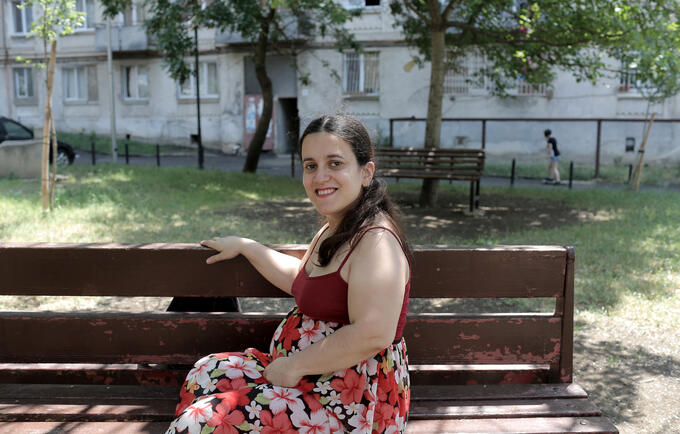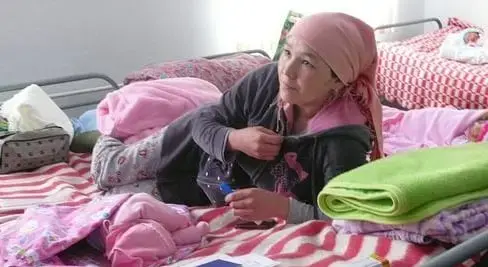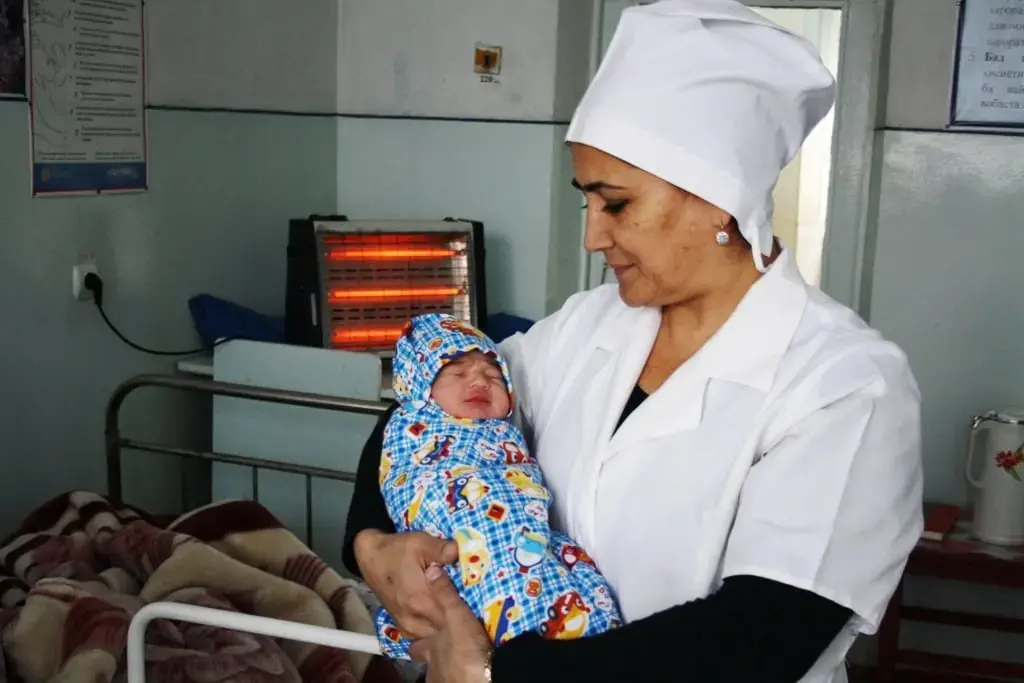TBILISI, Georgia – Anna Maisuradze was just a small child of four or five years old when she realized that she wasn’t like the other kids. “As I grew up, I felt it even more – because of the way others were treating me,” says Maisuradze, who has artificial joints on both sides of her body as a result of neonatal sepsis.
“But I have never stigmatized myself,” she says. “I understood that others believed I would not be able to give birth, but I have never thought myself that I would not marry and have a child.”
Maisuradze, now 32, is expecting a child with her husband soon. Women with disabilities like her do not always enjoy the same sexual and reproductive health and rights as other women. But that is starting to change in Georgia, thanks in part to efforts by UNFPA to transform social protection systems to ensure that their needs are equally met.
“As the UN agency responsible for sexual and reproductive health, UNFPA has been working for years to ensure that every woman has access to dignified, human-rights-based medical services,” says Lela Bakradze, head of UNFPA’s Georgia Country Office.
Every woman has a right to dignified medical services
This year, UNFPA and five other UN agencies initiated a new two-year Joint Programme with the support of the Sustainable Development Goals (SDG) Fund that aims to ensure that the needs of women and young people with disabilities are reflected in Georgia’s legal framework and health-care and social programmes. UNFPA and the other partner agencies – UNICEF, WHO, UNDP, UN Women and OHCHR – are cooperating with state institutions, civil society and service providers to address some of the key factors leading to the social exclusion of people with disabilities. UNFPA’s specific intervention strategy within the programme is focused on facilitating access to sexual and reproductive health, as well as strengthening policies and services related to gender-based violence.
“Within the framework of this new programme, UNFPA Georgia and our partner organizations have an opportunity to make important steps towards the improvement of their lives of women and youth with disabilities and the quality of reproductive health that they receive,” Bakradze says.
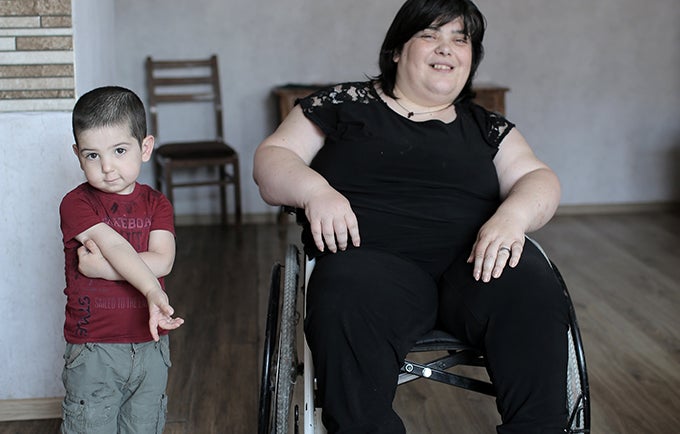
Local and international experts have already started working on amendments to the Standard Operating Procedures for Family Planning to include the clinical needs of women and youth with disabilities in line with international best practices. The overall strategy of the Joint Programme is to address key factors leading to social exclusion of people with disabilities while supporting implementation of the Convention on the Rights of Persons with Disabilities and accelerating progress towards achieving the Sustainable Development Goals. This includes dismantling stereotypes, providing services and changing attitudes.
Members of the public and service providers often hold stereotypical, stigmatizing beliefs about women with disabilities when it comes to their sexuality and related needs, according to a 2019 National Assessment of Sexual and Reproductive Health and Rights in Georgia. The assessment, published by the country’s public defender with financial support from UNFPA, noted that women with disabilities are often perceived as “sexless” creatures who should have no interest in reproductive health.
Fighting against stigmatization
“People cannot imagine that a woman with disabilities could have a normal sexual life,” says Maisuradze, explaining that she has encountered these attitudes herself. “They are convinced that ‘nobody will marry her,’ ‘no one will like her,’ ‘nobody needs her.’ They don’t expect you to have a sexual partner or have a family and give birth to a child.”
Maisuradze, who works in a bookshop and has a bachelor’s degree in business administration and a master’s in criminal law, says she has always been independent and was lucky that her mother and the rest of her family always supported her in having a regular life. But she says she knows many cases where parents would not allow their children with disabilities to even go to school, as well as women with disabilities who did not have children due to their families’ attitudes and later regretted it.
“Education and awareness are starting to make a change in this situation,” she says. “I would tell other women that if they want to have a child or a partner, they should not submit to stereotypes and prejudice. They should do what makes them happy despite public opinion.”
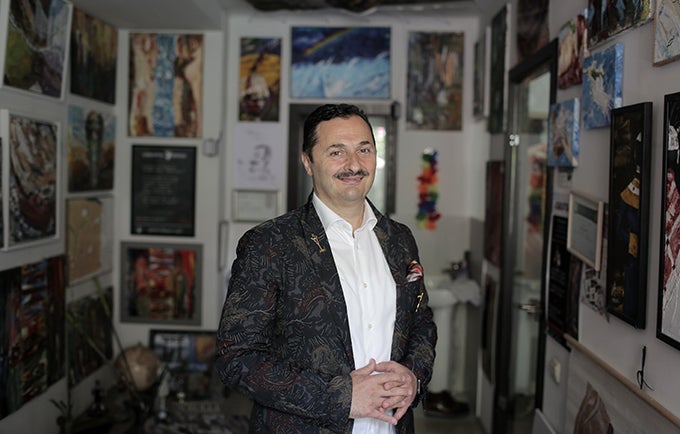
Wheelchair user Ekaterine Kadjaia and her husband were turned down by several clinics when they decided they wanted to have a child through in vitro fertilization. This is a common occurrence, according the 2019 National Assessment, which found that medical service providers in Georgia often do not treat women with disabilities as people who are entitled to a sexual life or to having children.
But Kadjaia persisted. “I was longing to have a child. My mind was preoccupied by this thought,” she says. “Everyone around me was surprised at my decision – even doctors warned me that pregnancy would not be easy for me – but I believed that I could give birth to a child myself.”
‘Her dedication was my inspiration’
Her determination eventually led her to Dr. Arsen Gvenetadze, head of the Zurab Sabakhtarashvili Reproductive Health Clinic and a long-time partner of UNFPA Georgia.
“Ekaterine’s dedication became my – and our – inspiration,” says Dr. Gvenetadze, who helped Kadjaia realize her dream of becoming a mother two years ago, when she gave birth to her son, Alexandre. He says her case is thus far the only one in Georgia of a wheelchair user having a child through in vitro fertilization.
“We analysed all the risks and carried out all the necessary medical procedures, and our first in vitro attempt was successful,” says Dr. Gvenetadze.
“Alexandre was born, and he is a fantastic boy. We made the mother happy, and we made ourselves happy,” says Dr. Gvenetadze. “If I came into this world a dozen times and had a dozen chances to choose my profession, I would be a reproductive health doctor each time. It’s my biggest joy when my team’s professional efforts make people happy.”
A version of this story was originally published on the website of UNFPA Georgia.

